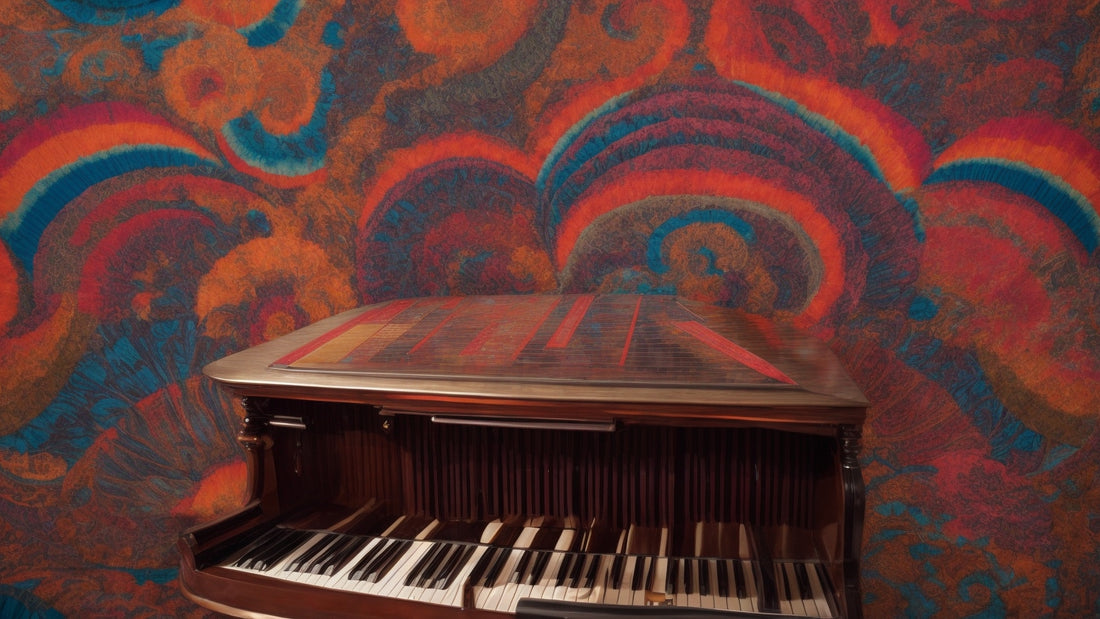Generative AI: A Future Composer in the Style of Mozart

Introduction
In an era where artificial intelligence (AI) is breaking new ground, its incursion into the realm of music composition, particularly in emulating classical maestros like Wolfgang Amadeus Mozart, is both fascinating and revolutionary. This article delves into how generative AI is emerging as a future composer, capable of creating music that resonates with the elegance and complexity of Mozart’s style.
The Evolution of AI in Music Composition
AI's journey in music composition began with simple algorithmic structures and has evolved into sophisticated neural networks capable of learning and replicating complex musical styles. By analyzing vast collections of classical music, AI systems like generative adversarial networks (GANs) and transformer-based models have learned to produce compositions that are stylistically reminiscent of great composers.
Mimicking Mozart: The AI Challenge
Mozart's music, known for its melodic beauty, intricate harmonies, and rich textures, presents a significant challenge for AI. The task involves not just understanding the technical aspects of music theory but also capturing the essence of Mozart’s emotional depth and creative genius. Advanced AI models are now being trained to grasp these nuances, creating compositions that bear a striking resemblance to Mozart’s works.
The Process: From Data to Symphony
The process of training AI to compose in the style of Mozart involves feeding it with a large dataset of his compositions. The AI analyzes patterns, structures, and styles, learning to predict and generate sequences that match Mozart's musical language. This technology doesn't just replicate existing pieces but creates new compositions, offering a modern interpretation of classical styles.
Ethical Considerations and Authenticity
As AI-generated music becomes more sophisticated, questions arise about authenticity and the ethical implications of creating art using AI. While some view AI as a tool for expanding human creativity, others worry about the blurring lines between human and machine-made art, raising questions about authorship and originality.
Collaboration Between AI and Human Musicians
The most promising aspect of AI in music composition is its potential for collaboration with human musicians. AI can offer fresh perspectives and ideas, which musicians can refine and interpret. This synergy could lead to new genres and styles, pushing the boundaries of musical creativity.
The Future of AI-Composed Music
Looking forward, AI-composed music has the potential to revolutionize how we experience and create music. Beyond replicating the styles of classical composers, AI might develop its unique compositional voice, offering contributions to the world of music that are currently unimaginable.
A Revolution in Musical Creation
Imagine a world where artificial intelligence is capable of creating music that rivals the genius of Mozart. With the advent of generative AI, this seemingly far-fetched concept is becoming a reality. Generative AI, also known as algorithmic composition or AI music, is a cutting-edge technology that is revolutionizing the way music is composed and experienced.
Captivating Compositions from Data-Driven Algorithms
Generative AI, a branch of machine learning that focuses on creating new content, has already demonstrated remarkable capabilities in generating music that is both original and stylistically consistent. AI algorithms can analyze vast datasets of classical music, identifying patterns, harmonies, and melodic structures that have characterized the works of renowned composers. By learning from these patterns, AI can then generate new compositions that adhere to these established styles, albeit with a 21st-century twist.
Mimicking Masters: Mozart's Legacy Resurrected by AI
One of the most impressive feats of generative AI in music is its ability to mimic the style of specific composers. In 2016, researchers at the Google AI Research Team created an AI algorithm called Magenta that was able to generate music in the style of Mozart. The resulting compositions were strikingly authentic, exhibiting the compositional techniques and melodic sensibilities that are hallmarks of Mozart's work.
A New Era of Musical Creation: Beyond Mozart's Echo
The ability of generative AI to mimic the style of historical composers is not merely a parlor trick; it holds the potential to revolutionize the way we create and experience music. AI algorithms can access and analyze a vast library of music, from classical masterpieces to contemporary compositions, enabling them to generate new works that are both original and informed by the rich history of musical tradition.
Breaking Free from Conventions: AI's Musical Explorations
Beyond simply mimicking existing styles, generative AI also has the potential to break new ground in musical composition. AI algorithms can be trained on specific musical concepts or styles, allowing them to generate compositions that explore uncharted sonic territories. For instance, AI could be trained on music that incorporates elements of nature, such as bird songs or the sounds of the rainforest, creating compositions that uniquely capture these natural elements.
AI Composers: Partners in Musical Innovation
The potential applications of generative AI in music are far-reaching. AI algorithms could be used to generate personalized soundtracks for films, games, and even everyday experiences. AI could also be used to create new musical forms or genres, pushing the boundaries of what is considered "music" in the 21st century.
A Future of Collaboration: Human Creativity and AI's Propulsion
As generative AI continues to evolve, its impact on the world of music will only grow. AI composers will not replace human composers, but rather serve as collaborators, providing new tools and inspiration for creating music that is both innovative and deeply human. The future of music is undoubtedly intertwined with the future of AI, and together, these two disciplines have the potential to create a new era of musical expression that is both breathtaking and thought-provoking.
Summary
Generative AI, as a future composer in the style of Mozart, is not just a technological marvel but a testament to the endless possibilities of human ingenuity. As AI continues to evolve, it promises to expand the horizons of musical composition, offering a blend of classical inspiration and modern innovation. In this fusion, we find not only a tribute to the past masters like Mozart but also a gateway to the future of music.
Generative AI is transforming the landscape of music composition, enabling the creation of music that emulates the style and essence of legendary composers like Mozart. It offers unlimited creativity, preserves musical legacies, fosters collaboration between humans and AI, and provides personalized music experiences for listeners.
While ethical considerations arise concerning originality, authenticity, and the impact on professional musicians, it is important to find a balance that respects the contributions of both human composers and AI-generated music.
The future of music composition is bright with generative AI. As the technology continues to evolve, we can expect AI-generated music to become increasingly sophisticated, captivating audiences with its artistic prowess. The collaboration between humans and AI will unlock new artistic dimensions, pushing the boundaries of musical innovation and inspiring generations to come.
